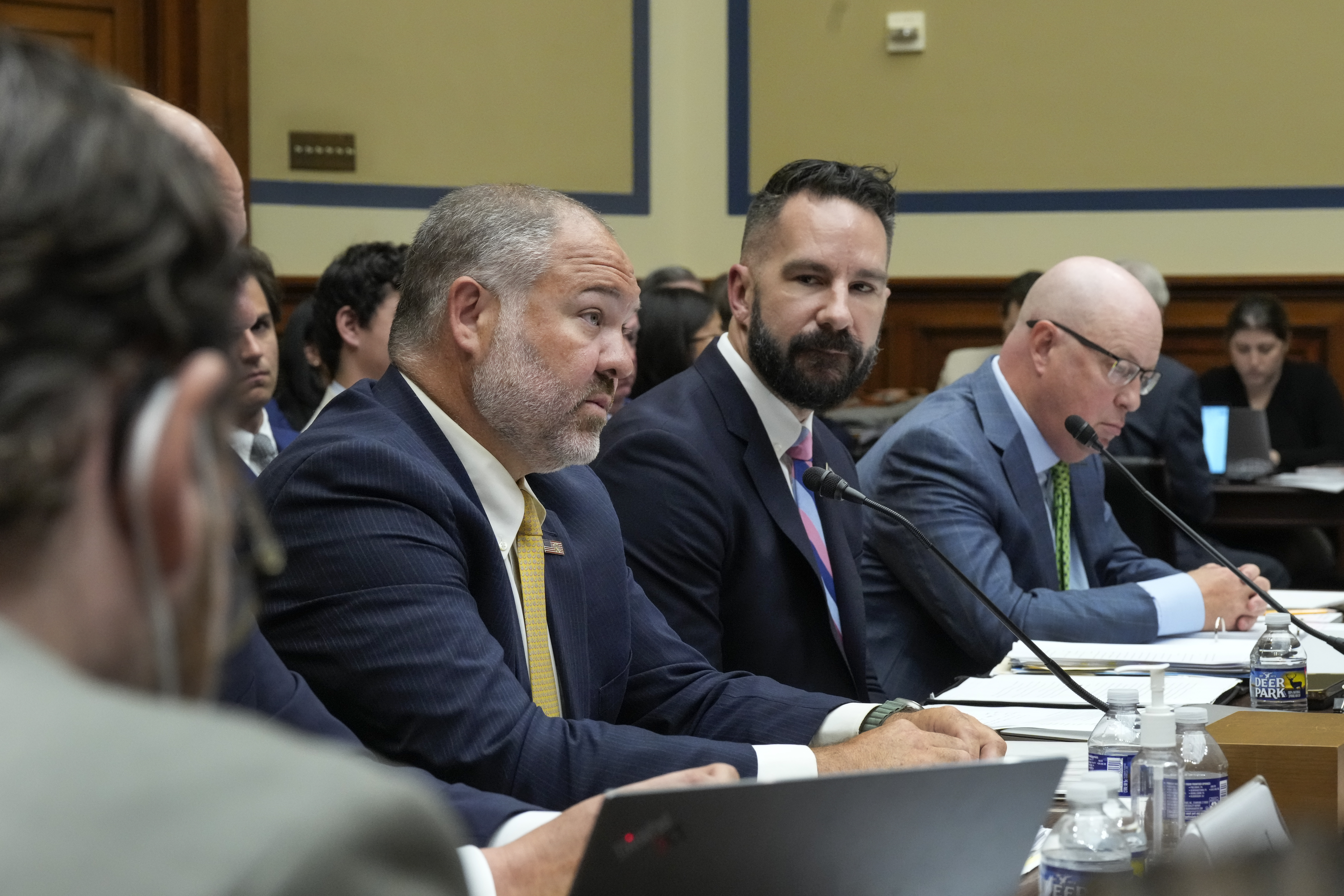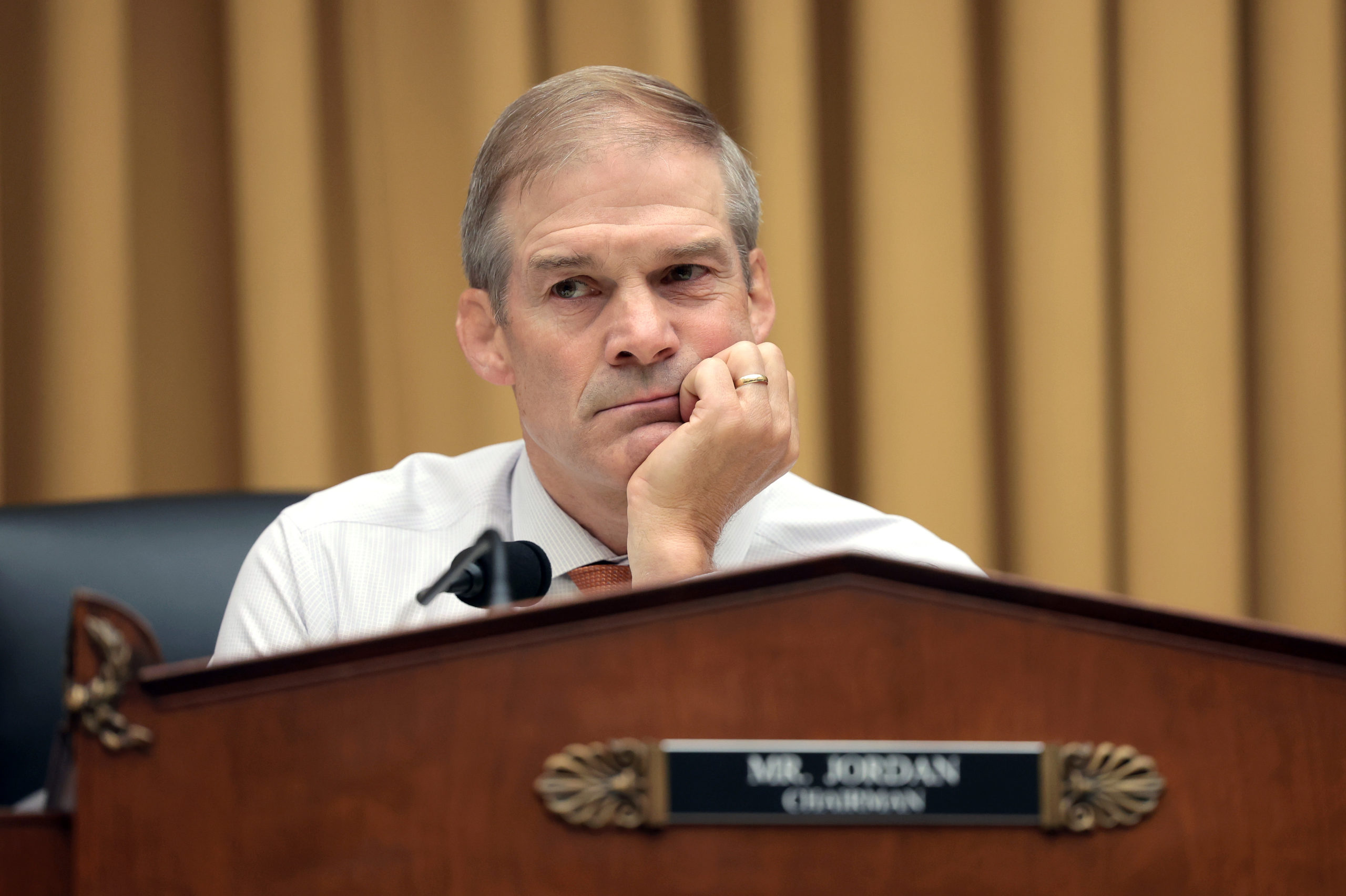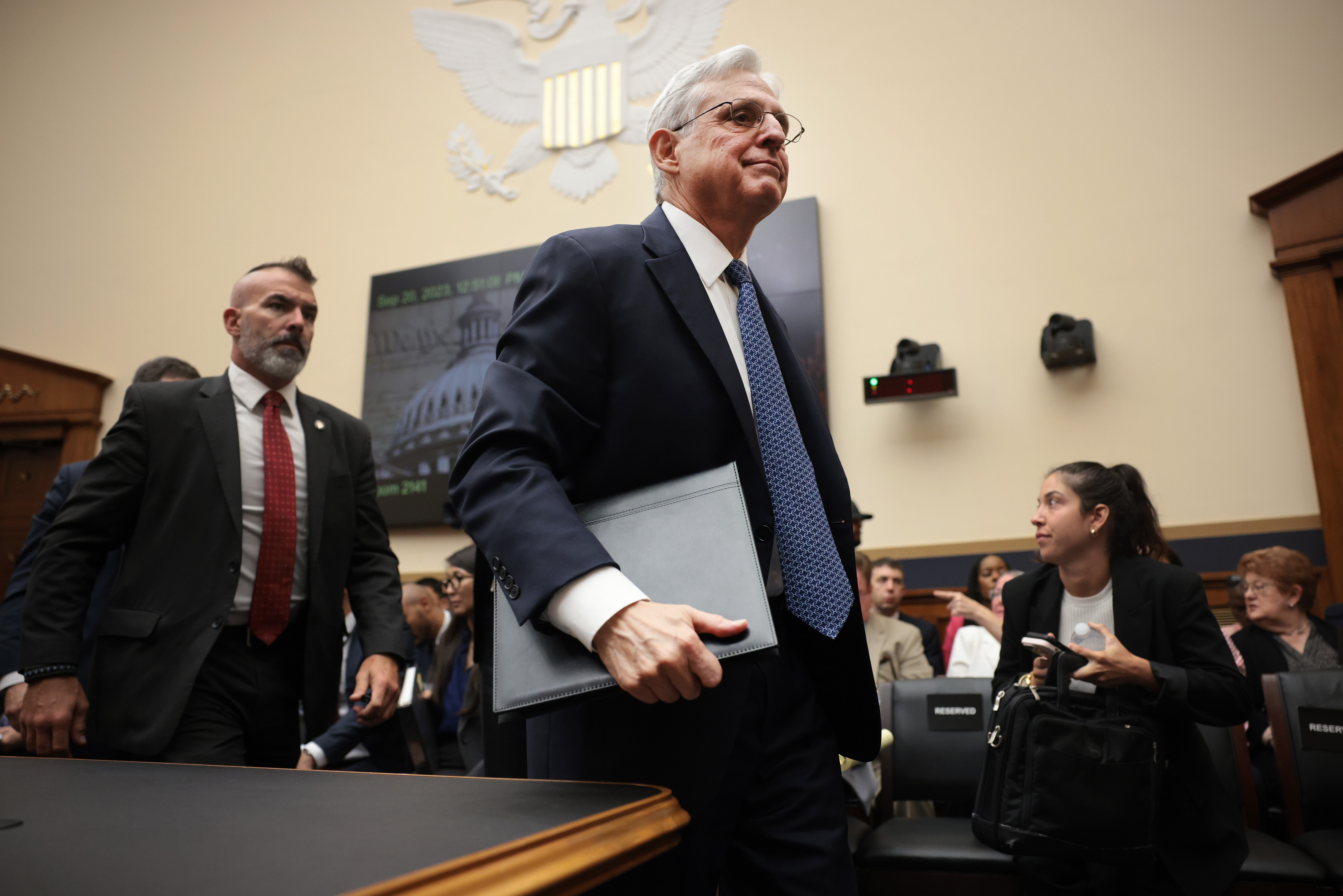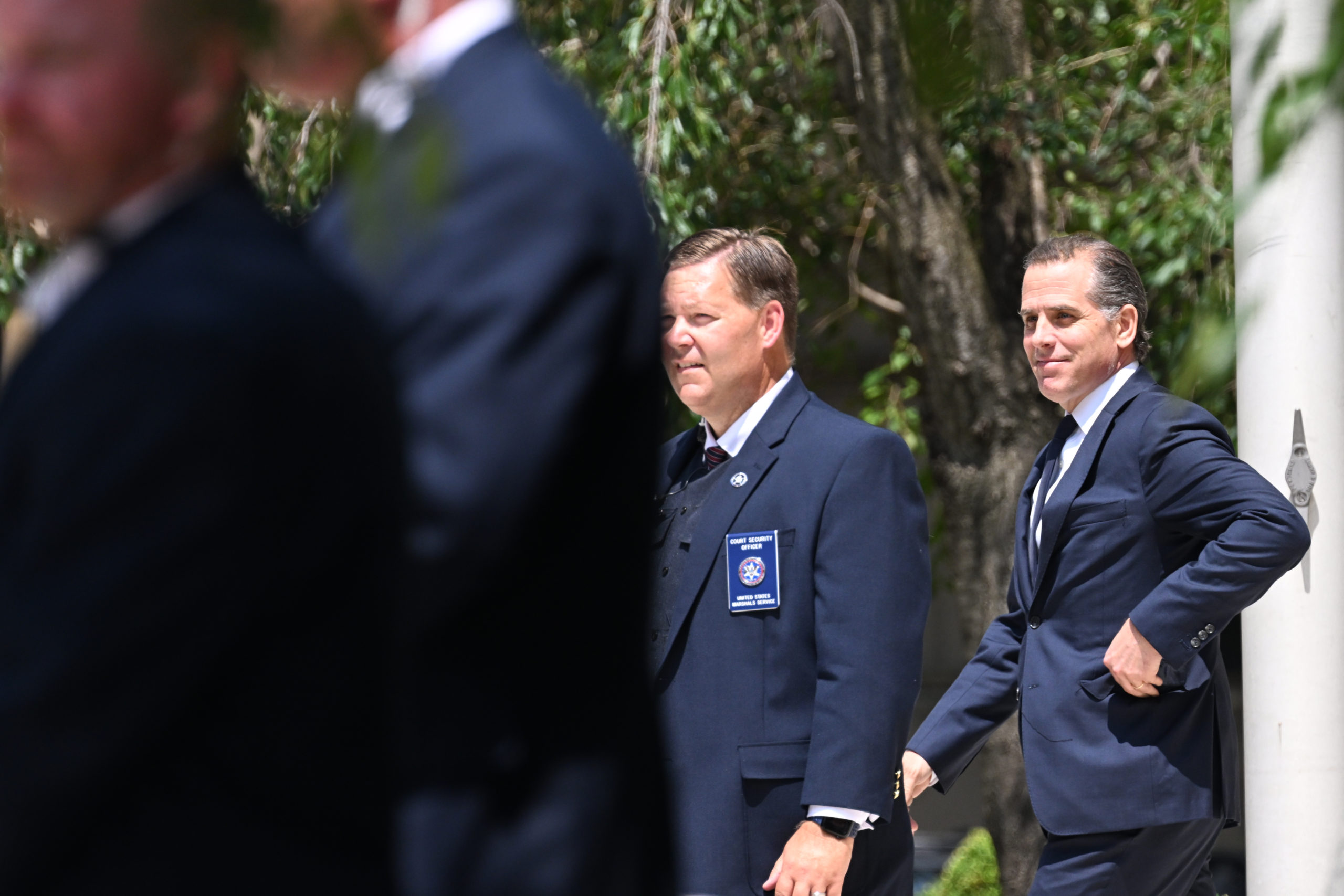Delaware U.S. Attorney David Weiss, special counsel in the ongoing Department of Justice (DOJ) case against Hunter Biden, is set to testify Tuesday and face a range of questions from the House Judiciary Committee.
Weiss will be testifying about the DOJ investigation into Hunter Biden’s taxes and firearms possession, which was marred by testimony from IRS whistleblowers Gary Shapley and Joseph Ziegler accusing the DOJ of giving the first son special treatment. (RELATED: Here Are The Biggest Takeaways From Merrick Garland’s Testimony About The Hunter Biden Case)
Below are five essential questions about the Hunter Biden case Weiss must answer.
1. Did you request special counsel status or special attorney authority before August 2023? Were there internal DOJ discussions about giving you additional charging authority?
Shapley testified in May to the House Ways and Means Committee and described an Oct. 7, 2022, meeting where Weiss allegedly stated he was denied special counsel authority after Biden-appointed U.S. Attorney for the District of Columbia Matthew Graves refused to cooperate on the Hunter Biden case.

WASHINGTON, DC – JULY 19: (L-R) Supervisory IRS Special Agent Gary Shapley and IRS Criminal Investigator Joseph Ziegler testify during a House Oversight Committee hearing related to the Justice Department’s investigation of Hunter Biden, on Capitol Hill July 19, 2023 in Washington, DC. The committee heard testimony from two whistleblowers from the Internal Revenue Service who allege that the Hunter Biden criminal probe was mishandled by the Department of Justice. (Photo by Drew Angerer/Getty Images)
Shapley’s attorneys have shared an email and handwritten notes containing Shapley’s account of what happened at the meeting. Two IRS officials have testified to the Ways and Means Committee that a rift developed between Shapley and Weiss after the meeting resulting in Shapley’s removal from the Hunter Biden case.
Weiss denied requesting special counsel authority in a letter he wrote to Republican South Carolina Sen. Lindsey Graham in July after the transcript of Shapley’s testimony became public. Weiss alluded to internal discussions about special attorney status in his letter to Graham but he did not go into detail.
Attorney General Merrick Garland appointed Weiss special counsel in August after the IRS whistleblower testimony and Hunter Biden’s guilty plea deal fell apart in court. (RELATED: Hunter Biden Tax Case Received Special Attention From DOJ Investigators, Top Official Testifies)
Inside the courtroom when Hunter Biden’s guilty plea agreement collapsed was DOJ special attorney Leo Wise, a U.S. Attorney from the District of Maryland who appeared to be added to the case in June when Hunter Biden was initially charged with a felony gun offense and two misdemeanors for tax avoidance. The court filings from the Hunter Biden case list Wise and another special attorney below Weiss’ signature, and Wise’s LinkedIn page indicates he joined the DOJ’s public integrity section in June.
Biden’s guilty plea agreement collapsed in July because of scrutiny from Delaware U.S. District Court Judge Maryellen Noreika. Hunter Biden ended up pleading not guilty to the two tax misdemeanors.
2. What assurances did Attorney General Garland give you about your charging authority? Can you discuss in vague terms your private conversations?
Garland testified to the House Judiciary Committee in September and repeatedly asserted that Weiss could have requested additional authority under section 515 to charge Hunter Biden outside of his jurisdiction. Garland also said Weiss had “full authority” on the Hunter Biden case, citing the letters Weiss sent to Congress.
Weiss wrote a letter on June 7 to House Judiciary Chairman Jim Jordan where he said he had “ultimate authority” over the Hunter Biden case. Later in June, Weiss wrote a second letter to Jordan where he said his authority was geographically restricted to his home district. In his letter to Graham, Weiss said he was never prevented from bringing charges in any jurisdiction.

WASHINGTON, DC – SEPTEMBER 20: Chair of the House Judiciary Committee Rep. Jim Jordan (R-OH) questions Attorney General Merrick Garland during a hearing in the Rayburn House Office Building on September 20, 2023 in Washington, DC. The committee is holding an oversight hearing on the U.S. Department of Justice and the investigation into Hunter Biden. (Photo by Win McNamee/Getty Images)
The attorney general testified that he did not observe any contradictions in Weiss’ letters to Congress and refused to discuss his private conversations with Weiss. Instead, Garland cited his previous testimony to the Senate where he insisted Weiss had complete authority to charge Hunter Biden and did not need to be designed special counsel.
Throughout his testimony, Garland deferred questions on the details of the Hunter Biden case to David Weiss and defended the integrity of Weiss’ investigation. (RELATED: Top Hunter Biden Prosecutor David Weiss, FBI ‘Constricted’ Internal Communications, Testimony Shows)
3. Did two Biden-appointed U.S. Attorneys refuse to cooperate on charging Hunter Biden? How did this influence your decision making?
Biden-appointed attorneys Graves and E. Martin Estrada, the U.S. Attorney for the Central District of California, both testified to the Judiciary Committee in October and confirmed their decision not to cooperate with Weiss on potentially charging Hunter Biden, according to transcripts reviewed by the Daily Caller. (RELATED: Biden-Appointed Prosecutor Ignored Potential Conflict Of Interest In Hunter Biden Case, Testimony Shows)
Shapley initially accused both U.S. Attorneys of refusing to cooperate and multiple officials on the Hunter Biden case corroborated the accusation before the prosecutors testified. Ziegler and the New York Times also confirmed Estrada’s decision.
Shapley also said Graves’ refusal to cooperate in early 2022 resulted in the statute of limitations expiring for the 2014-2015 tax years, when the alleged tax offenses were committed in Graves’ district.
Garland told Jordan that the U.S. Attorneys did not have to partner with Weiss on the Hunter Biden case, but could not turn him down. (RELATED: These Were Republicans’ Biggest Missed Opportunities From Merrick Garland’s Testimony)

WASHINGTON, DC – SEPTEMBER 20: U.S. Attorney General Merrick Garland leaves during a break in a House Judiciary Committee in the Rayburn House Office Building on September 20, 2023 in Washington, DC. The committee is holding an oversight hearing on the U.S. Department of Justice. (Photo by Win McNamee/Getty Images)
“I’m going to say again that no one had the authority to turn him down, they could refuse to partner with him,” Garland stated.
Estrada testified that his office authorized special attorney status for multiple Delaware Assistant U.S. Attorneys before he assumed his role in September 2022. He did not divulge any specific information about the supposed special attorneys.
4. In order to charge Hunter Biden, did you need approval from the DOJ Tax Division? Was there a bureaucratic process for charging Hunter Biden?
Graves told the House Judiciary Committee Weiss needed approval from the DOJ Tax Division to charge Hunter Biden. Acting Deputy Assistant Attorney General for Criminal Matters at the DOJ Tax Division Stuart Goldberg testified before the House Judiciary Committee in October and confirmed Weiss required approval from DOJ Tax for charging Hunter Biden, according to a transcript of his testimony reviewed by the Daily Caller.
Goldberg stated that Weiss would still need approval from DOJ Tax even if he obtained special counsel authority or special attorney authority, according to a transcript of his testimony reviewed by the Daily Caller. He cited the DOJ manual and regulation granting the tax division authority over internal revenue laws.
FBI Agent Thomas Sobocinski testified in September that Weiss dealt with a “cumbersome” bureaucratic process, while disputing part of Shapley’s testimony. The FBI agent contested Shapley’s account of the Oct. 7, 2022, meeting and said he believed Weiss had final charging authority.
Garland disputed Sobocinski’s testimony when pressed by now-House Speaker Mike Johnson at the beginning of his testimony.
“I’m not aware but that’s not true. There’s nothing cumbersome about the process,” Garland told Johnson. Another FBI Agent on the Hunter Biden case also testified that Weiss had to use “other processes” to charge Hunter Biden because Graves and Estrada refused to cooperate.
5. What was your plan for charging Hunter Biden before the IRS whistleblowers came forward? Are you aware of the accusations from the whistleblowers?
Before Shapley and Ziegler came forward, Weiss reportedly did not plan on having Hunter Biden plead guilty to any charges. The IRS agents submitted a special agent report in February 2022 recommending a slate of misdemeanor and felony tax charges for Hunter Biden, both whistleblowers testified.

WILMINGTON, DELAWARE – JULY 26: Hunter Biden, son of U.S. President Joe Biden, departs the J. Caleb Boggs Federal Building and United States Courthouse on July 26, 2023 in Wilmington, Delaware. Biden pleaded not guilty to two misdemeanor tax charges in a deal with prosecutors to avoid prosecution on an additional gun charge. However, the federal judge overseeing the case unexpectedly delayed Biden’s plea deal and deferred her decision until more information is put forth by both the prosecution and the defense. (Photo by Mark Makela/Getty Images)
“So at that time we decided what charges we were going to push forward in the prosecution report. So we all made the decision on that we were going to move forward with 2014, 2015, 2016, 2017, 2018, and 2019. And it would be felony counts related to 2014 and felony counts related to 2018,” Ziegler stated.
The Ways and Means Committee released documents in September summarizing the proposed misdemeanor and felony charges for Hunter Biden from tax years 2014-2019. The documents were part of a trove of documents released by the Ways and Means Committee substantiating the IRS whistleblower testimony.
The special agent report was sent to DOJ Tax and a memo was written in support of the prosecution recommendation, resulting in Weiss’ request to Graves for cooperation, according to Shapley. Graves confirmed that he declined to work with Weiss on prosecuting Hunter Biden in March 2022.
DOJ Tax attorneys hosted a meeting in June 2022 where they presented the case against charging Hunter Biden, catching the IRS agents off guard, Ziegler testified. At the meeting the DOJ Tax officials said they would approve the 2017-2019 tax charges to be leveled in California, the whistleblower said.
Estrada declined to partner with Weiss in October 2022 on charging Hunter Biden in his district. He took office a month prior to the decision.
When he became special counsel, Weiss filed a motion to dismiss the Delaware tax charges against Hunter Biden in order to potentially charge him in D.C. or the Central District of California. Noreika approved Weiss’ motion and Hunter Biden’s Delaware tax charges were dismissed.
Hunter Biden was indicted in September on three federal gun charges tied to his October 2018 purchase of a Colt Cobra revolver in Delaware when he allegedly suffered from a crack cocaine addiction. Biden pleaded not guilty to the gun charges in October and downplayed them in an op-ed he wrote Thursday in USA Today. He also downplayed the ongoing Congressional investigation into the Biden family’s foreign business dealings. (RELATED: Comer Unveils Bank Records Showing Joe Biden Received $40,000 Of ‘Laundered’ Chinese Money)
The younger Biden is suing the IRS for what his legal team argues constitute illegal disclosures by Shapley and Ziegler in their testimony and media interviews. His defense attorney Abbe Lowell urged Weiss to investigate the whistleblowers in an August letter.
Lowell previously wrote a letter in June containing what appeared to be false allegations against Shapley. In his public testimony, Shapley accused Lowell of making false statements about him.
Weiss has not filed any new tax charges against Hunter Biden.
